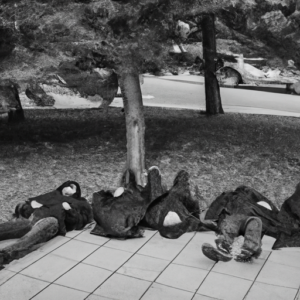The Opioid Crisis in Canada: Rising Death Rates and Efforts to Combat Northern America’s Public Health Emergency
A recent article from CBC News brings attention to an escalating societal issue in Canada: the opioid crisis. This recent development does not only reveal the horrifying impact of opioids, but it also underscores the rising challenge our nation is confronted with to curtail this public health emergency.
The Deathly Siege of Opioids
Opioids, a class of drugs that include prescription pain relievers, heroin, and synthetic opioids such as fentanyl, have unleashed an epidemic, causing an unprecedented spike in mortality rates. As per the cited CBC News piece, in less than 24 hours, six individuals were found lifeless in Montreal’s downtown region. These heartbreaking incidents are not isolated, but rather evidence of a widespread crisis sweeping across the nation. This surge in opioid-related deaths necessitates an immediate response from policy makers, healthcare providers, and community leaders.
Unmasking the Ripple Effect: Crime and Homelessness
Grand in magnitude, the opioid crisis is not confined to its direct victims. It has an adverse ripple effect, at the heart of which are crime rates and homelessness. The opioid epidemic has not only thrown lives into chaos, but has also catalysed a crisis of homelessness and criminality. Stolen medications, drug-trafficking, and physical assault are only a few symptoms of this complex nexus. Meanwhile, substance abuse contributes to homelessness as addicts often lose their jobs, housing, and supports due to their dependency.
Proactive Interventions and Potential Remedies
The Canadian opioid abatement class action seeks to hold pharmaceutical companies liable for their role in this crisis. By petitioning for compensation for public health care costs related to opioids, it amplifies the moral responsibility of these companies to be a part of the solution.
Mirroring global best practices, Canada has also adopted harm reduction strategies, which focus on minimizing the harmful effects of drug use rather than on eliminating use altogether. Naloxone, an opioid overdose antidote, has become a vital tool in this struggle. Despite these efforts, the crisis remains a daunting challenge that requires a more consolidated approach.
Key Points:
- The opioid crisis in Canada is causing a rapid increase in mortality rates.
- The crisis has a ripple effect, escalating crime rates and homelessness.
- Canada has launched the opioid abatement class action, seeking to hold pharmaceutical companies accountable.
- Naloxone, an opioid overdose antidote, is being widely adopted as part of harm reduction strategies.
A Call to Action and Collaboration
In the face of an unabated opioid crisis, collaboration across sectors is not just desirable – it’s necessary. Government officials, healthcare providers, law enforcement, and communities worldwide must pledge their collective commitment to turn the tide on this grave situation. The cost of inaction or delayed action is simply too high, measured in human lives.
We must relentlessly advocate for systemic change, demand responsibility from pharmaceutical companies, and champion integrated services for those struggling with opioid addiction. Composite efforts to prevent the propagation of opioids, ameliorate the living conditions of the homeless, and curb rising crime rates are indispensable to succeed in this battle.
In closing, the opioid crisis in Canada is a multi-faceted problem, a grim reality that calls for radical changes in our societal strategies – especially in healthcare and socio-economic structures. The fight ahead of us is challenging, no doubt, but it is a fight that we, as a compassionate and resilient society, must win.
To Conclude
The urgency cannot be overstated, for this is a crisis affecting the most vulnerable in our society – sowing seeds of despair and costing countless lives. Be it through class action against pharmaceutical companies, harm reduction strategies involving naloxone, or other interdisciplinary actions, the fight to end the opioid crisis requires a united front, one where every Canadian plays their part.
